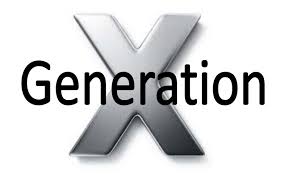

Here in the waning days of October, 2015, we got our first look at the new age of Generation X leadership played out on the national stage. Paul Ryan, 45 years old (born in 1970), Congressman from Wisconsin, reluctantly agreed to run for Speaker of the House. What is uniquely generational about Ryan’s public contemplation of this grueling post are the conditions he placed on the factions of his own party before he would agree to run. Chief among these conditions were Ryan’s intention to NOT be tied to the Speaker’s office all the time and/or on the road constantly raising money for the party—both long-term practices of the Speaker of the House. Ryan has young children and wants to spend as much time as he can with them. Work-life balance is a priority and has been laid out as a condition for Ryan—right now the most popular man in Congress—to take the Speaker’s chair. Welcome to politics and leadership in the Gen-X Age.
Generation X refers to people born from 1965 to 1980—people now between 35 to 50 years old, and we are only now starting to see them assume leadership roles on the national stage. One of the hallmarks of this complex generation—really distinguishing them from the Baby Boomers who preceded them (and who populate most of the leadership roles within our government right now)—is their emphasis on work-life balance. Following a generation (Boomers) who invented workaholism (as a practice and a term), Gen-X workers have always been skeptical of institutional power, hesitant to see their personal identity through their work role and intent (unlike their parents) to create and maintain some work-life balance. For many years now, Generation X workers have been the youngest, least powerful contributors on the job and this work-life balance emphasis was mistaken (by the Boomers and Traditionalists in charge) as sloth or laziness. What will these Gen-X values look like in senior leadership roles? We are now—and will be for many years to come—getting to find out.
 Many are calling Ryan’s value of work-life balance a sign of hypocrisy due to his political opposition to paid family leave. Gen-X liberals believe these policies should be mandated and employer-paid. More conservative Gen-Xers believe the policies are important, and that individuals are responsible for bringing them about in their own lives as they can. As a leading contributor to a generational approach to individual, team and organization development, I am not concerned with the political spins of this particular issue.
Many are calling Ryan’s value of work-life balance a sign of hypocrisy due to his political opposition to paid family leave. Gen-X liberals believe these policies should be mandated and employer-paid. More conservative Gen-Xers believe the policies are important, and that individuals are responsible for bringing them about in their own lives as they can. As a leading contributor to a generational approach to individual, team and organization development, I am not concerned with the political spins of this particular issue.
OKA has a new book (Generation Translation: Tools for Bridging the Gap, by Rita M. Murray and Hile Rutledge) to be released in November and a new experiential workshop on this exciting content coming in March of 2016. Let OKA introduce you to this powerful approach to self-awareness and development.


Leave a Comment